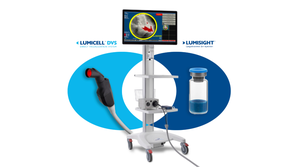Originally Published MDDI May 2006 News Trends The Office of In Vitro Diagnostics is urging industry to set up early meetings to facilitate discussions with FDA. The meetings for investigational device exemption (IDE) products would enable FDA to give companies direction for studies and requirements.
May 1, 2006
News Trends
The Office of In Vitro Diagnostics is urging industry to set up early meetings to facilitate discussions with FDA. The meetings for investigational device exemption (IDE) products would enable FDA to give companies direction for studies and requirements.
“FDA has not done a good job promoting the pre-IDE process,” said Donald St. Pierre, deputy director of the Office of IVD Evaluation and Safety. “The best tool a manufacturer has is a pre-IDE submission. It is an opportunity to start a dialog with the people who will review the IVD when it comes in,” he said. St. Pierre spoke at RAPS Horizons 2006 in March.
The pre-IDE process, he said, gives an IVD manufacturer an idea of what FDA is thinking. “This informal guidance is extremely flexible and not binding. It saves time and money because FDA reviewers have looked at similar products, and they can apply that knowledge to each new product.”
He noted, however, that manufacturers should not ask for a pre-IDE meeting if studies are already under way. “If it is farther down the development path, don't come in.” And he cautioned industry to come prepared with narrowly defined indications. An indication that is too broad and unclear leads FDA to ask more questions and become uncertain about the company's direction.
“Everything we do is driven by intended use,” said St. Pierre. “Discussions should be focused on the indications, and trials should address quality versus quantity.”
Designing small studies, he said, can help companies get their product to market sooner. He also suggested bringing clinicians to the pre-IDE meeting. “The best meetings are when manufacturers brings clinicians. It helps show FDA that the manufacturer understands what it wants the device to do.
“FDA has a flexible regulatory toolbox. For those things that affect public health, we work very fast. If it is a good test, we want to get it out there quickly. Good science is not absolute science—you need the right amount for what you want to prove,” he said.
Copyright ©2006 Medical Device & Diagnostic Industry
You May Also Like


